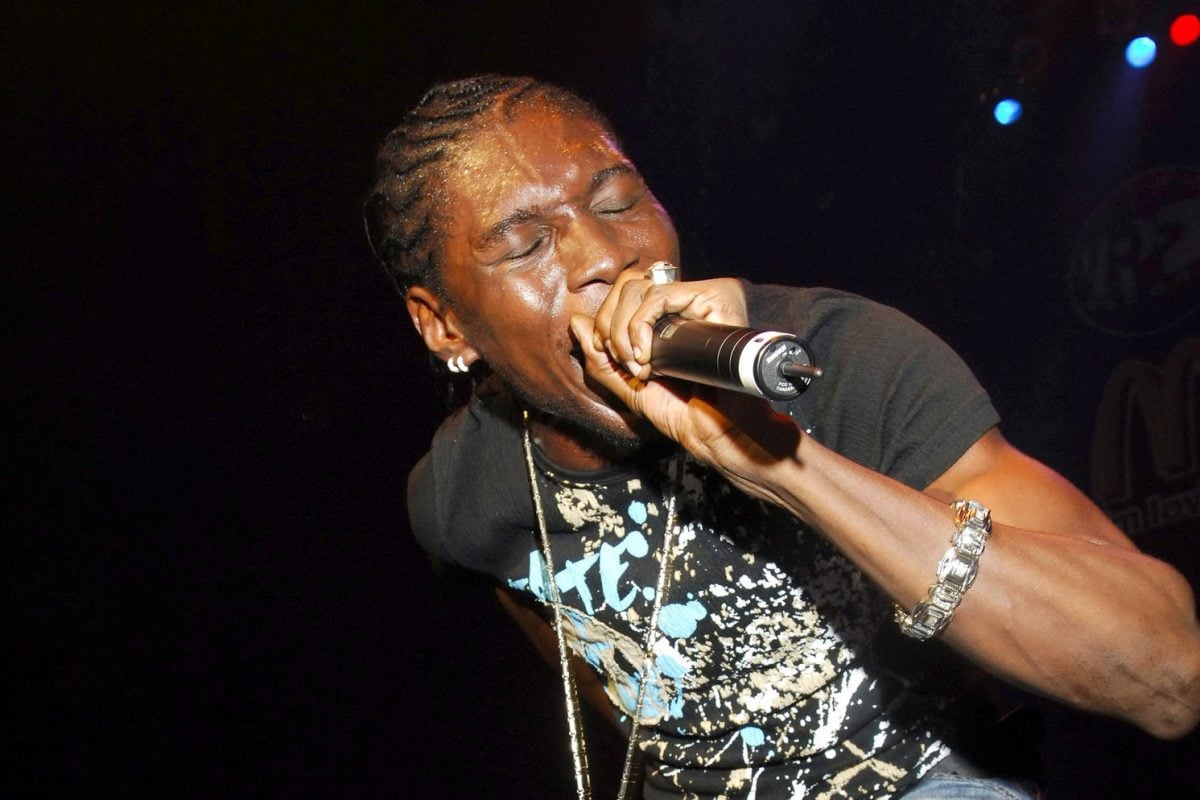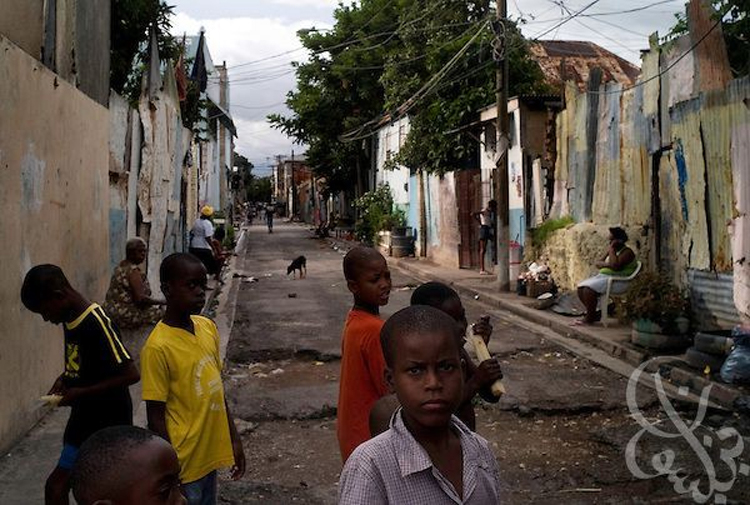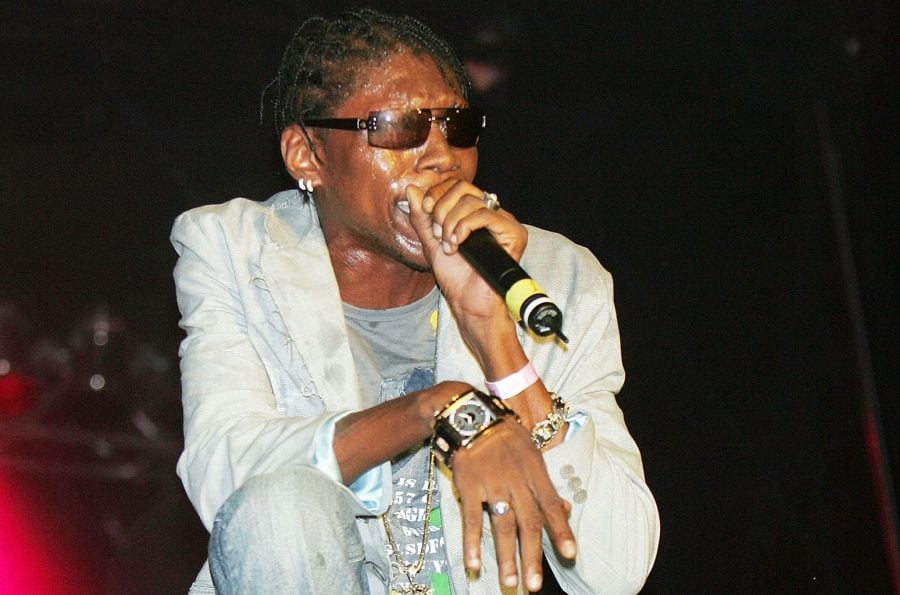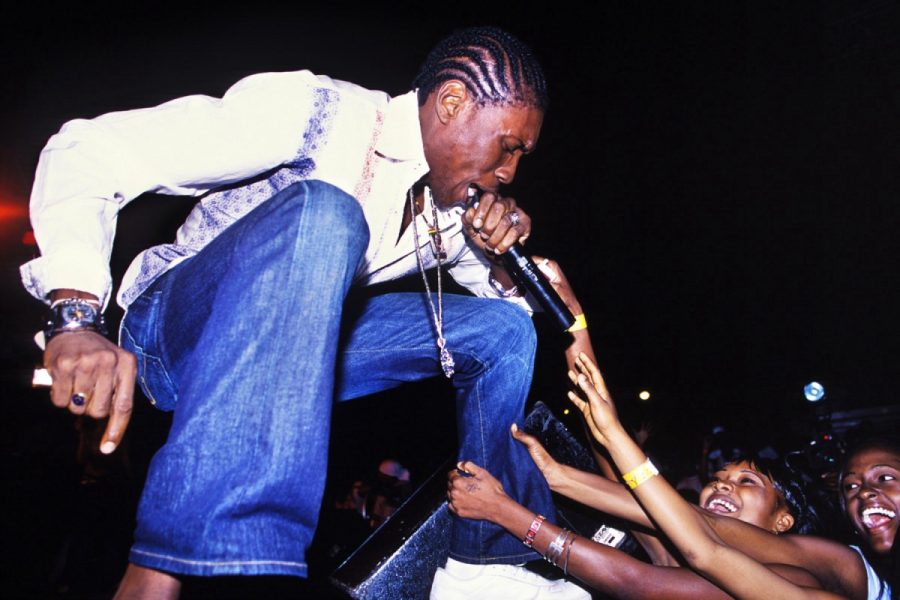Vybz Kartel’s Conviction Upheld Despite Evidence Tampering, Jury Bribery And Judicial Misconduct

On April 3, 2020, a three-member Court of Appeal panel upheld dancehall superstar Adidja “Vybz Kartel” Palmer’s murder conviction of Clive “Lizard” Williams. The 44-year-old was sentenced to life in prison in 2014 after a 64-day trial along with other defendants–– Shawn “Storm” Campbell, Kahira Jones and Andre St. John.
The original trial judge, Lennox Campbell, ordered that Campbell and Jones should each serve a minimum of 25 years in prison before becoming eligible for parole, while Palmer and St. John should serve a minimum of 35 years and 30 years respectively.
Court of Appeal Judges Frank Wiliams, Dennis Morrison and Patrick Brooks released a 235-page opinion in response to the lawyers’ 2018 appeal on numerous grounds but refused to overturn the murder charges against Vybz Kartel and his co-defendants. The appellate court later reduced Vybz Kartel’s parole serving time by a laughable 2.5 years.
The prosecution’s sole eyewitness, Lamar “Wee” Chow made an account of the events that allegedly took place on August 16, 2011. He accused Palmer, Kahira and Campbell of killing Williams over missing firearms. But the defendants deny this and there’s not much direct evidence to confirm the accusations. Additionally, Chow’s account was inconsistent as he first stated that he saw Campbell’s body, but didn’t see him get killed then later said he never saw the body.
It is no secret that the judicial system of Jamaica is scarred with corrupt officials. But in this particular case, there were a myriad of questionable issues from the police tampering of cellphone evidence while it was in their custody to bribery of members of the jury.
The bulk of the evidence presented by the prosecution was circumstantial as the body is yet to be discovered. Given the inconsistencies of the testimony of Mr. Chow, the police corruption, prosecutorial and judicial bias and bribery by one juror to another, the lengths it took to prosecute Kartel are far more sinister than finding out what happened to Mr. Williams.
Police unfairly targeted Vybz Kartel and other dancehall artists
Vybz Kartel’s trouble with Jamaica’s law enforcement took place in 2011 during a time when the police were admittedly targeting dancehall artists. When Kartel was first charged on September 30, 2011, Assistant Commissioner Ealan Powell said the arrest was part of a police sting on artists. When the police first arrested Adidja Palmer, it was for a spliff. But after locking him up for three days on the marijuana charge and seizing his phone, the police slapped him with the murder charges. Later in 2013, Security Minister Peter Bunting cited Vybz’ lyrics as “propaganda” promoting crime on the island.
The government is quick to blame Jamaica’s high crime rates not on its failure and refusal to create sound education, job opportunities and housing for its citizens, but on dancehall tunes.
It was decided centuries ago that Jamaica was never to be an independent country and would simply be a tourist attraction to serve mainly white former slave masters.
Outside of the gorgeous beaches and white sand is abject poverty throughout the island. Out of the impoverished population came a form of reggae music called Dancehall that some rightly criticize for its lude and raunchy lyrics. But the genre also exposes the deep poverty, crime and despair on the island. Kartel is Jamaica’s favorite and most popular dancehall artist but the enormity of his talent is a threat to the economy of Jamaica. If Kartel has fans around the world and they see Jamaica for its poverty and crime and not its beaches and black subservience his success is imminent danger to the economic interest to those in power on the island.

Tampering of cellphone evidence
One of the overarching weaknesses with this murder case was the reliance on circumstantial evidence to convict the defendants.
The key piece of evidence presented by the prosecutors, a BlackBerry cell phone that belonged to Kartel, was tampered with as a text message and three phone calls were made from the phone while it was in police custody. The police admitted that the cell phone was not properly secured and the use of the phone was not explained by any of the prosecution witnesses.
There was also an SD card that contained pictures and video found in Vybz Kartel’s phone but it wasn’t stored as evidence by police until days after it was confiscated. A prosecution witness admitted that the SD card could have been tampered with but the Court of Appeal deemed it admissible evidence.
Bribery of the jury
The most egregious error that the Court of Appeal failed to overturn is the trial judge ignoring a bribe from one juror to another. During the trial, it was found out that a member of the jury had attempted to persuade another juror by offering $500,000. Judge Campbell decided, however, to carry on with the trial with the same jurors even though they may have been paid off for their vote.
Not only is bribery of juror a crime but in most other cases this would have been immediate grounds for a mistrial. The reason it was not called a mistrial is because it happened on the final day of the trial and it is clear that the now-retired judge Campbell did not want to be humiliated when the 64-day trial, the longest in history, would have forced the prosecution to retry the case. It is clear that Judge Campbell was more concerned about his image than the defendants’ rights.
Inadequate hours of deliberation
Another surprising detail about the trial is that the deliberation of the jury started late in the afternoon. The jury entered the chambers at 3:42 pm and exited at 5:35 pm with an 10-1 guilty verdict against the defendants.
Counsel for Kartel admitted evidence in their brief showing that, according to Supreme Court of Judicature of Jamaica Criminal Bench Book, starting at a jury deliberation so late in the day was “unreasonable,” stating:
“In more complex cases, it may well be unreasonable to conclude the summation during the afternoon session. In such cases, it is best to delay concluding the summation until early the following day in order to give the jury adequate time to consider all the issues before it.”

The judge decided to ignore these guidelines in the longest trial in the history of Jamaica and the Court of Appeal did not find a problem with this.
Further, when the jury first returned with their verdict, the court only asked if the jury had reached a verdict in regards to Vybz Kartel in which they said they had. They made no mention of the other defendants. The court asked if the verdict was unanimous to which the jury answered no. They were then instructed to return for deliberation and a mere 18 minutes later they returned a verdict of 10 -1 for all the co-defendants.
It’s concerning that the jury originally deliberated for less than 2 hours and did not have a unanimous vote for all the defendants. As it was argued by the co-defendant, starting deliberations so late in the day put undue pressure for a rushed verdict. It’s also appalling that Jamaica’s law doesn’t require a unanimous vote in a murder case.
The burden of proof is essential
Courts are simply the opinions of the ruling class. It should not be a surprise that the Court of Appeal would deny Vybz Kartel’s appeal despite the mountain of evidence that the conviction should be overturned.
Some people would argue that the miscarriages of justice by the court system should be ignored in this case because the defendants are probably guilty. But in the court of law, what’s essential is the burden of proof. Whether or not we think the defendants are guilty, the prosecution has to be able to prove their case beyond a reasonable doubt. Yet they failed to do that.
We must understand that this is a political issue at hand. Injustices like this are carried out often in Jamaica. The only difference is that regular working class people do not have the money for a defense team nor the media visibility of fame.
We should struggle for the Court of Appeal, the judge and police to feel consequences of this and other injustices. They must answer to the poor and working class people of Jamaica in all cases where they are found to be corrupt, including this one.
Next steps of the case: Appealing to the slave masters
Kartel’s trial was not to seek justice for the death of Clive “Lizard” Williams but was a theater to imprison Jamaica’s most popular citizen and show to its white and neocolonial investors that the island is safe and tough on crime.
If the judicial system was interested in fighting crime it would take a look at the late Prime Minister Edward Seaga, a white man from Boston, Massuchuetts and CIA operative that flooded the country with guns and used gangs to kill thousands over the years. Ironically, Seaga was laid to rest in a state funeral for pushing the CIA agenda and killing thousands while Jamaica’s dancehall hero is relegated to sit in prison.
Vybz Kartel’s lawyers have announced that they will be taking the appeal to the Privy Council of the UK in order to ask our former slave masters to decide if the Court of Appeal judges made the right decision.

While we wait for this, it is critical for Kartel to build a real political campaign around the case. He is loved by the people of the island, Caribbean and world and has 1 million Instagram followers who can be a real resource in the appeal process.
Kartel must see that outside of the law he can harness the energy of the people to put pressure on the UK courts to finally overturn his conviction. Kartel’s fan base around the world can put pressure on the courts to make the right decision to finally Free Worl’ Boss.
